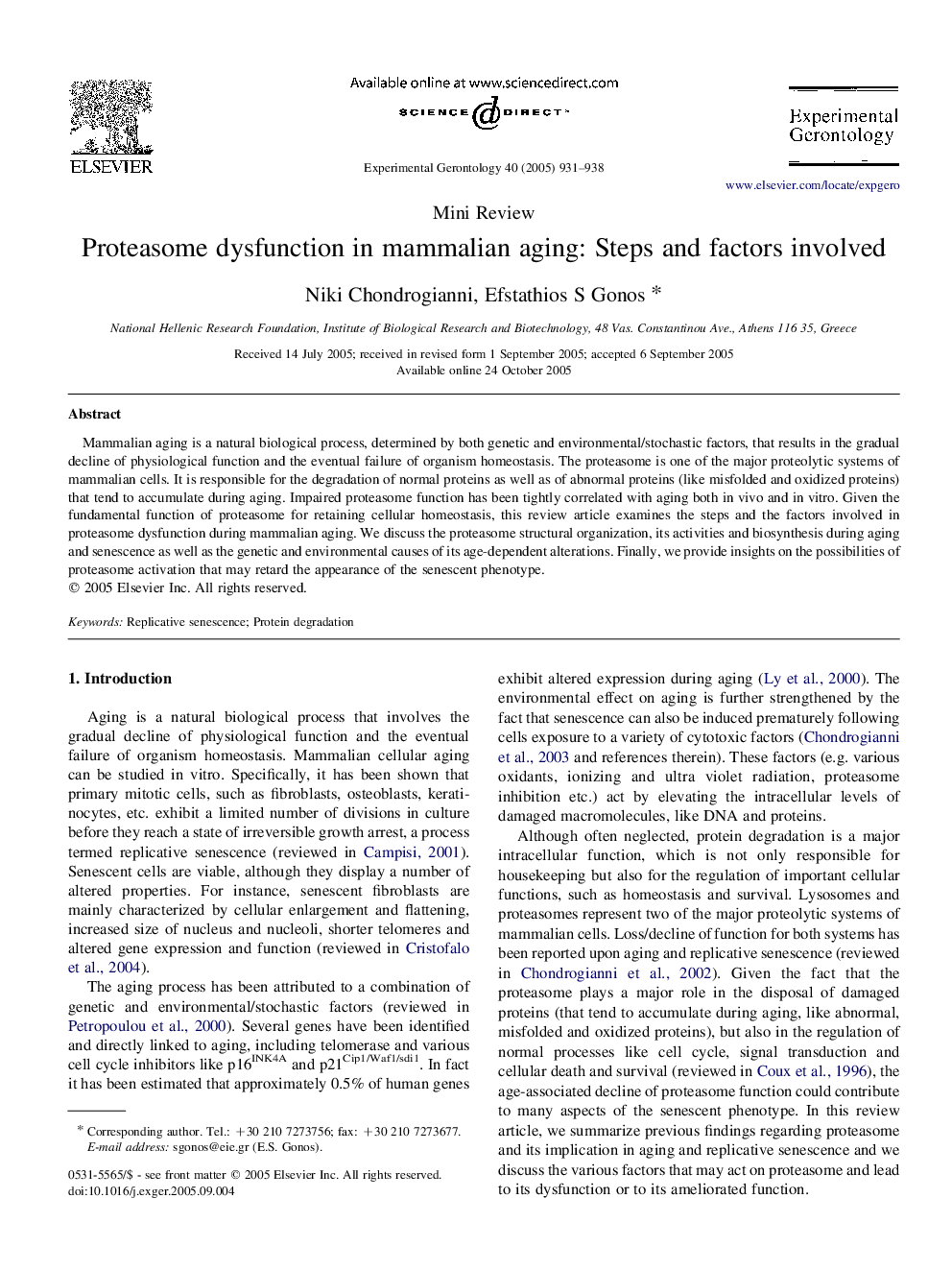| Article ID | Journal | Published Year | Pages | File Type |
|---|---|---|---|---|
| 9879955 | Experimental Gerontology | 2005 | 8 Pages |
Abstract
Mammalian aging is a natural biological process, determined by both genetic and environmental/stochastic factors, that results in the gradual decline of physiological function and the eventual failure of organism homeostasis. The proteasome is one of the major proteolytic systems of mammalian cells. It is responsible for the degradation of normal proteins as well as of abnormal proteins (like misfolded and oxidized proteins) that tend to accumulate during aging. Impaired proteasome function has been tightly correlated with aging both in vivo and in vitro. Given the fundamental function of proteasome for retaining cellular homeostasis, this review article examines the steps and the factors involved in proteasome dysfunction during mammalian aging. We discuss the proteasome structural organization, its activities and biosynthesis during aging and senescence as well as the genetic and environmental causes of its age-dependent alterations. Finally, we provide insights on the possibilities of proteasome activation that may retard the appearance of the senescent phenotype.
Related Topics
Life Sciences
Biochemistry, Genetics and Molecular Biology
Ageing
Authors
Niki Chondrogianni, Efstathios S Gonos,
